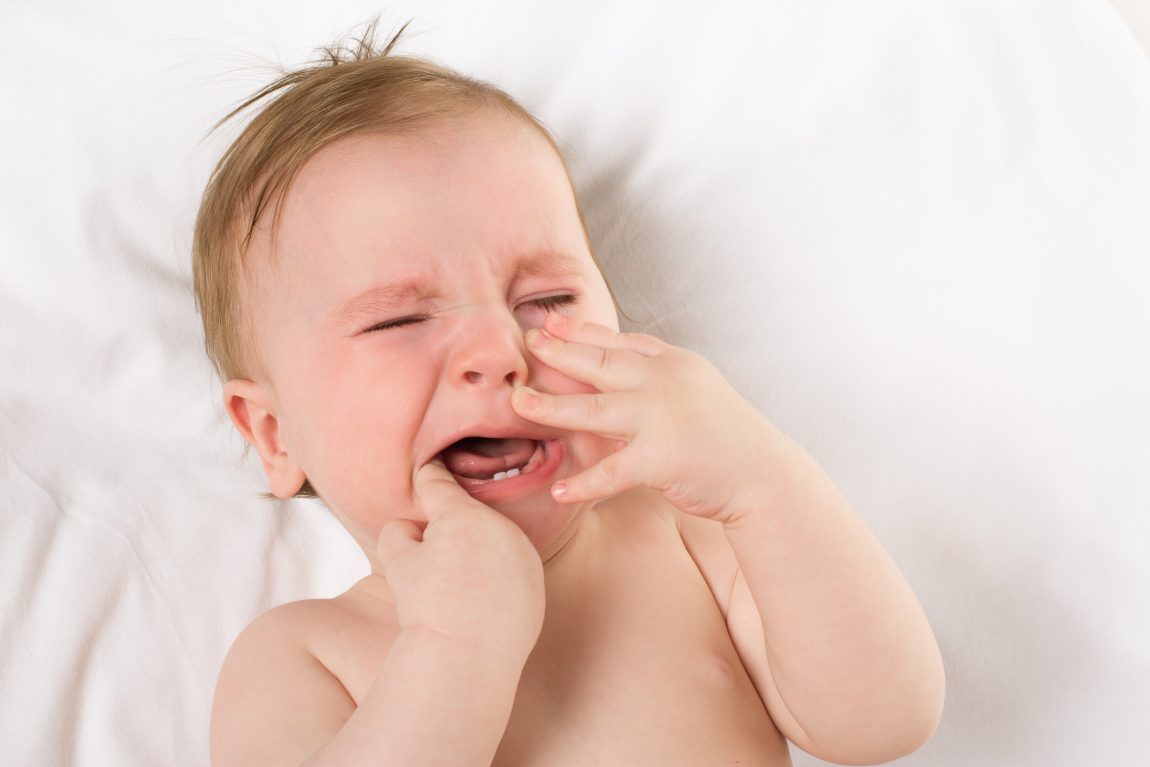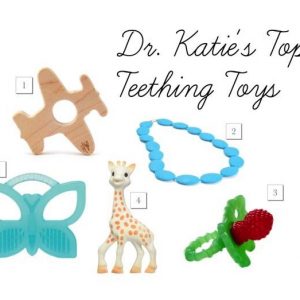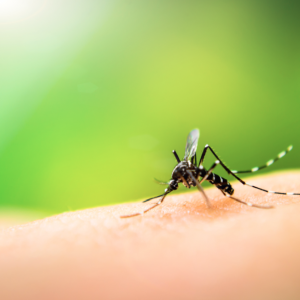
The Three P’s to Overcome Teething
You have read all the books, implemented the perfect bedtime routine, and finally have your little one sleeping through the night. Then, just like that, they are waking up throughout the night irritable and crying. While some babies are not affected at all by teething, others experience nighttime awakenings, irritability, and pain. Teething causes many parents restless nights, fear, and frustration. We receive many emails with questions about teething and how to help soothe the pain. So, today I am tackling the most common questions I get about teething and how to overcome the pain and fussiness.
How do I know if my infant is teething or if they are getting sick? The common symptoms associated with teething include biting or gnawing of the hand, drooling, irritability, and nighttime awakening. Although not recognized by the American Academy of Pediatrics as symptoms of teething, many parents also complain that their child is experiencing runny nose, diarrhea, and fever. It can sometimes be difficult to tell whether the symptoms your baby is having is from teething or if they are starting to get sick. Although some babies can develop a low grade temperature during teething, it is important that if your child has developed a temperature over 100.7, they are evaluated by their pediatrician. The persistence of symptoms is also an important indicator that your child might be fighting something other than teething. When in doubt, it is always better to have your child evaluated by their pediatrician.
What are amber beads and do you think they help with pain? Amber teething necklaces have become a popular way for parents to help soothe pain associated with teething. There is a belief that the amber releases a pain-relieving substance that is absorbed through the skin. In addition, retailers claim that the necklace has the ability to improve the immune system and help to reduce inflammation. There is no scientific research to support these claims and more importantly, jewelry of any type can serve as a choking or strangulation risk for infants. The American Academy of Pediatrics (AAP) does not recommend that infants wear jewelry of any kind. I recommend against the use of amber beads as a pain reducer and highly suggest that if you are going to use them, your child is under close supervision at all times.
Do you recommend homeopathic teething tablets to help soothe the pain? It was determined by the Food & Drug Administration that these types of medications have ingredients in them that can be dangerous for babies. It was recommended that they be taken off the market and are currently not being sold in the United States. It is important to stay away from any teething products that contain the ingredients of belladonna and gels with benzocaine. These ingredients are marketed as a numbing agent for your child’s aching gums. However, the FDA has issued warnings due to potential side effects such as seizures, difficulty breathing, lethargy, excessive sleepiness, and muscle weakness to name a few.
What should I be doing to help soothe my baby’s pain and what teething toys do you recommend?
My three P’s for getting your child through teething are:
1. Pressure/cold. Make sure to have toys for your child to bite and chew. The most effective toys are solid without a gel filling that can be frozen or cooled. I love Dr. Brown’s teethers! Designed by a pediatric dentist, they are made to soothe and comfort your little one throughout the teething process. Through cooling, chewing, and pressure, teethers help to decrease pain of swollen gums. All of Dr. Brown’s teethers are freezer safe for added cooling comfort. One of my favorite Dr. Brown’s teether is the flexees ergonomic teether. They are super easy to grasp and designed to get to all teething areas.
2. Pain control. If the toys do not work and your child is in pain, please make sure to give him or her Tylenol. Speak to your doctor about the appropriate dosing and plan for pain control.
3. Patience. Remember teething will pass. Sometimes it is hard, especially when they are up all night, but it will get better. Hang in there!
My eight month old doesn’t have any teeth yet, should I be worried? No! Every infant is different. The average age for an infant to start teething is 6 months. However some infants start teething at 4 months and some start much later. No need to worry. If your child has not started teething after 12 months of age, you should have him or her evaluated by their pediatrician.
Please let us know any teething tricks you have learned along the way. We hope this helps you with your journey!




Your giveaway was shared with me and I’m now obsessed with your blog! As the Mom of an eight month old this article was sooo helpful!
Aw thank you so much:) We hope to provide the best and most up to date information for all parents. Thanks so much for following us:)